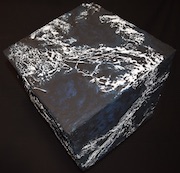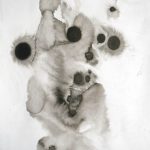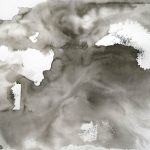Urban Magazine (Skopje, Macedonia), June 2001
Questions from Marjan Kostadinovski
Q: Please explained to our readers about your vision of new music technologies, some comparation of your beginning when you create your first music and to this date.
RR: The modern digital studio has given us so much power to edit and modify a recording, that it teaches us a very important lesson: the energy within the music is more important than perfection. Because we now have the tools to modify every tiny unimportant detail of the music, we start to think that we should do that. But if we do, we remove the life from a performance. When I was just starting, in the late ’70s and early ’80s, I could not afford multitrack tape machines or nice mixers, so I performed everything live, with very minimal equipment. Doing that, I was forced to define a meaningful approach for myself and create a statement somehow. Now that it is so easy and cheap to make electronic music, this lesson seems even more important: The substance in the music comes before everything else. The technology just gets in the way if you start thinking about it too much.
Q: Your ideas about Trance, New Age and Sleep Concert with some feedback of people who have visited this legendary concert in USA.
RR: With my slower music, I simply want to create a musical experience that can engulf the listener like a womb, but when it stops playing it becomes difficult to remember the details, like a dream. I want the music to create its own altered space and time, like a special place that you go, which leaves only a perfume in the air after listening, nothing solid. When the mystery is complex enough, and it vanishes in your memory, the result is that you want to repeat the experience. With each listening you hear something different, depending on your mood. The layers in the music slowly unfold, like a good wine.
Regarding the sleep concerts, I wanted to create an environment that fit together with hypnogoc experiences, and heightened the sense of environment for the listeners. My favorite memory comes from a concert in Berkeley (California) in the mid-eighties. In the morning, people were starting to head home, while some were milling around the room quietly as I was starting to tear down my equipment. A woman returned to the room after having attempted to leave. She said, “I went outside to go to my car, but everything felt so loud I had to come back in. The music made me too sensitive to the outside noise.” I considered this a success, to sensitize a listener to the world around her. When we see our man-made world clearly for the first time, it often seems cold and angular compared to the natural world. Likewise, when we hear it clearly, we realize how harsh and loud our modern world has become. Perhaps, if we can learn to see more clearly the world that we have created for ourselves, we will strive to make it more suitable for our actual existence. If there is anything that this sort of quiet, slow music can provide besides mere sanctuary, perhaps it can invite us to pay closer attention to the world around us, just a little bit.
Q: How media are accepted this music in USA.
RR: American media has little interest in experimental music, mostly just mainstream pop music, rap, and fake country/western music. Except for the underground, most people ignore what I do.
Q: I have a little problems with my colleagues with this genre of ambient music. They say that this is very depressive music, non-innovative music, and very hard to listening, Do you like to say something about this people facts about ambient music, what is in general ambient music…
RR: I don’t have anything to say about a “genre” of music. I can’t say anything to defend every other musician. In fact I would tend to agree, at times, with the negative terms you are using. My own music is very personal. I don’t make it with an awareness of a style or genre. If a listener responds – in a personal way – to my music, then perhaps that listener will hear the subtleties in it, the mysteries, the beauty. If someone doesn’t respond to it personally, then it might not interest them at all. Maybe it’s a bit like mysticism within a religious tradition – some people are attracted to it, most people are not, and nothing can force a person to become attracted to it. It’s a personal, experiential realm. I merely want to create something that I would want to listen to, something that fits my world.






You must be logged in to post a comment.